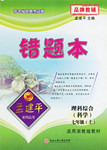
People around the world ________ Christmas trees ever since 1510.
A.decorated
B.have decorated
C.have been decorated
D.have been decorating
 孟建平错题本系列答案
孟建平错题本系列答案 超能学典应用题题卡系列答案
超能学典应用题题卡系列答案科目:高中英语 来源: 题型:单选题
查看答案和解析>>
科目:高中英语 来源: 题型:阅读理解
There are still many things that Peter Cooke would like to try his hand at — paper-making and feather-work are on his list. For the moment, though, he will stick to the skill that he has been delighted to make perfect over the past ten years: making delicate and unusual objects out of shells.
As he leads me round his apartment showing me his work, he points to a pair of shell-covered ornaments(装饰品) above a fireplace. “I shan’t be at all bothered if people don’t buy them because I have got so used to them, and to me they’re lovely. I never meant to sell my work commercially. Some friends came to see me about five years ago and said, ‘You must have an exhibition — people ought to see these. We’ll talk to a man who owns an art gallery’”. The result was an exhibition in London, at which 70 per cent of the objects were sold. His second exhibition opened at the gallery yesterday. Considering the enormous prices the pieces command —around £2,000 for the ornaments — an empty space above the fireplace would seem a small sacrifice for Cooke to make.
There are 86 pieces in the exhibition, with prices starting at£225 for a shell-flower in a crystal vase. Cooke insists that he has nothing to do with the prices and is cheerily open about their level: he claims there is nobody else in the world who produces work like his, and, as the gallery-owner told him, “Well, you’re going to stop one day and everybody will want your pieces because there won’t be any more.”
“I do wish, though,” says Cooke, “that I’d taken this up a lot earlier, because then I would have been able to produce really wonderful things — at least the potential would have been there. Although the ideas are still there and I’m doing the best I can now, I’m more limited physically than I was when I started.” Still, the work that he has managed to produce is a long way from the common shell constructions that can be found in seaside shops. “I have a miniature(微型的) mind,” he says, and this has resulted in boxes covered in thousands of tiny shells, little shaded pictures made from shells and baskets of astonishingly realistic flowers.?
Cooke’s quest(追求) for beautiful, and especially tiny, shells has taken him further than his Norfolk shore: to France, Thailand, Mexico, South Africa and the Philippines, to name but a few of the beaches where he has lain on his stomach and looked for beauties to bring home. He is insistent that he only collects dead shells and defends himself against people who write him letters accusing him of stripping the world’s beaches. “When I am collecting shells, I hear people’s great fat feet crunching(嘎吱嘎吱地踩) them up far faster than I can collect them; and the ones that are left, the sea breaks up. I would not dream of collecting shells with living creatures in them or diving for them, but once their occupants have left, why should I not collect them?” If one bases this argument on the amount of luggage that can be carried home by one man, the beauty of whose work is often greater than its natural parts, it becomes very convincing indeed.
What does the reader learn about Peter Cooke in the first paragraph?
A. He has produced hand-made objects in different materials.?
B. He hopes to work with other materials in the future.?
C. He has written about his love of making shell objects.?
D. He was praised for his shell objects many years ago.
When mentioning the cost of his shell objects, Cooke ____.
A. cleverly changes the subject.
B. defends the prices charged for his work.
C. says he has no idea why the level is so high.
D. notes that his work will not always be so popular.
The “small sacrifice” in Paragraph 2 refers to _________.?
A. the loss of Cooke’s ornaments? B. the display of Cooke’s ornaments?
C. the cost of keeping Cooke’s ornaments D. the space required to store Cooke’s ornaments
What does Cooke regret about his work?
A. He is not as famous as he should have been.?B. He makes less money than he should make.
C. He is less imaginative than he used to be.? D. He is not as skillful as he used to be. ?
What does the reader learn about Cooke's shell-collecting activities?
A. Not everyone approves of what he does.
B. Other methods might make his work easier.
C. Other tourists get in the way of his collecting.
D. Not all shells are the right size and shape for his work
查看答案和解析>>
科目:高中英语 来源: 题型:
Annealing
Annealing is a way of making metal softer by heating it and then letting it cool very slowly, if metal is heated and then cooled very quickly, for example by dipping(浸) it in water, it will be very hard but also very brittle(脆)—that is, it will break easily. Metal that has been annealed is soft but does not breaks as easily. It is possible to make metal as hard or as soft as is wished, by annealing it. The metal is heated, and allowed to cool slowly for a certain length of time. The longer the heated metal takes to cool slowly, the softer it becomes. Annealing can also be used on other material, such as glass.
1. Annealing can make metal ____
A. hard and tough(韧) B. hard but brittle C. soft but tough D. soft and brittle
2. Why do people put hot metal in water?
A. To make it hard. B. To make it soft. C. To make it cool. D. To make it brittle
3. In annealing, the required hardness of a metal depends on ______
A. the quantity of water used B. the temperature of the metal
C. the softness of the metal D. the timing of the operation
4. As suggested by the text, how can glass be made less brittle?
A. It can be heated and then cooled quickly.
B. It can be cooled and then heated slowly.
C. It can be heated and then cooled slowly.
D. It can be cooled and then heated quickly.
查看答案和解析>>
科目:高中英语 来源: 题型:阅读理解
完形填空(共20小题;每小题1.5分,满分30分)
阅读下面短文,从短文后各题所给的四个选项(A、B、C和D)中,选出可以填入空白处的最佳选项,并在答题卡上将该项涂黑。
Driving to a store after a busy day at work, I saw a man standing near the store holding a sign that said, “will work for food.” I knew at that moment that I was going into the store and 36 him something to eat.
As I 37 the car park, I saw in my car mirror a lady come out from a hairdresser’s and 38 the man. I thought she must be going to give him some 39 or something to help him out. In the store I was 40 to get the things I needed and also the chicken dinner and a soda that I wanted to give the man outside. I hurried out to my car and 41 that I was going to be able to hopefully help this man.
When I drove out of the car park, I couldn’t see the 42 . As I turned the corner I saw the man sitting in a 43 area away from the hairdresser’s and still 44 up the sign. I immediately 45 over and gave the man the dinner and soda and said“ 46 this will get you through today.” He looked at me and said “Thank you so much!”As I got back into my car, I looked in the 47 and saw the man swallowing the dinner as if he hadn’t eaten for days.
I was so 48 that I was able to help him and at the same time I was so sad that the woman from the hairdresser’s, 49 ,had asked the man to 50 from her shop. It’s sad to say that 51 I live in a small city where homeless is not as 52 as in larger cities, people are uncomfortable with these people in 53 . All they need to do is lend a helping hand 54 and it could make a huge 55 in their lives.
A. cook B. buy C. pay D. serve
A. turned into B. got over C. called at D. pointed out
A. interview B. comfort C. blame D. approach
A. example B. space C. money D. comfort
A. preparing B. hurrying C. hesitating D. planning
A. explained B. wondered C. agreed D. felt
A. man B. food C. lady D. sign
A. different B. strange C. famous D. comfortable.
A. making B. holding C. taking D. building
A. turned B. thought C. pulled D. looked
A. Hopefully B. Finally C. Luckily D. Naturally
A. store B. mirror C. square D. crowd
A. popular B. anxious C. pleased D. patient
A. immediately B. obviously C. carefully D. nervously
A. stop B. suffer C. move D. change
A. whether B. because C. though D. unless
A. poor B. visible C. selfish D. happy
A. danger B. action C. need D. moment
A. at times B. at the time C. at one time D. at a time
A. difference B. mistake C. decision D. living
查看答案和解析>>
科目:高中英语 来源: 题型:阅读理解
第二节:完形填空(共20小题;每小题1.5分,满分30分)
Everything speeds up with people’s lives. People often eat fast food __36__ nice meals cooked by mother __37__. They go to the shop, where the meal is __38___ cooked. They can take __39__ from the shelf when they ___40___ their dollars and in ten minutes eat it and ___41__ their dinner. This is not good for __42___.
People move a great __43__ from city to city, ___44___ their jobs. Airplanes go ___45__ between cities. Every twenty-five seconds planes are taking off from the airports. When people move __46__ the cities, they leave their friends ___47___, moving from place to place. They leave their old mother and father, their children, and leave their __48___. And people become without roots, without a place ___49__ they can really call “home”. This has very__50___ effects. One thing is that the old people often live so far from their children that, ___51__ they become old, there is nobody to __52___ them. Brothers and sisters move far away from each other. They telephone each other. But the families are very __53___. The society doesn’t have the __54___ ways any more, which kept people ___55___ together. And many people feel rather lonely today.
36. A. without B. together with C. instead of D. as
37. A. at school B. at home C. in the house D. in the kitchen
38. A. already B. still C. not D. just
39. A. them B. it C. everything D. little
40. A. put B. get C. set D. pay
41. A. finish B. cook C. fetch D. bring
42. A. families B. children C. old people D. business
43. A. many B. much C. deal D. far
44. A. doing B. to do C. changing D. change
45. A. usually B. immediately C. constantly D. fast
46. A. from B. to C. in D. aroun
47. A. behind B. away C. out D. off
48. A. friends B. parents C. teachers D. students
49. A. or B. and C. where D. that
50. A. bad B. surprising C. exciting D. great
51. A. if B. when C. since D. because
52. A. see B. look after C. hear from D. telephone
53. A. scattered B. different C. large D. separated
54. A. new B. old C. easy D. same
55. A. close B. near C. live D. friendly
查看答案和解析>>
湖北省互联网违法和不良信息举报平台 | 网上有害信息举报专区 | 电信诈骗举报专区 | 涉历史虚无主义有害信息举报专区 | 涉企侵权举报专区
违法和不良信息举报电话:027-86699610 举报邮箱:58377363@163.com